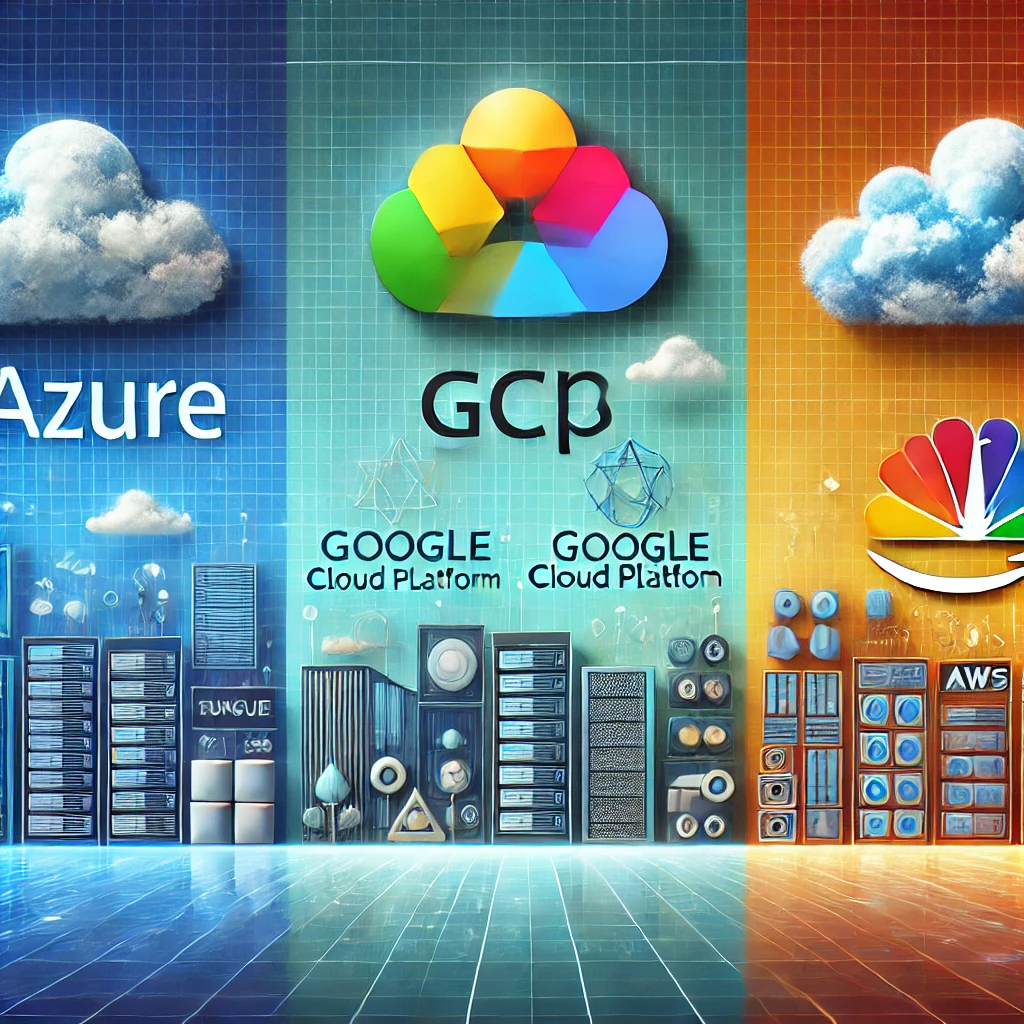AWS vs Azure vs Google Cloud: Which is Best for Your Security Needs?
This article provides a comprehensive comparison of Amazon Web Services (AWS), Microsoft Azure, and Google Cloud Platform (GCP) in terms of their security features and offerings. We will delve into various aspects such as identity and access management, data protection, network security, and compliance.
Identity and Access Management (IAM)
AWS
Amazon Web Services (AWS) offers Identity and Access Management (IAM) for managing access to AWS services and resources securely. AWS IAM allows you to create and manage users, groups, and roles, and to control their permission levels using policies. AWS also provides Multi-Factor Authentication (MFA) and single sign-on (SSO) for enhancing account security.
Azure
Microsoft Azure Active Directory (Azure AD) is the identity and access management service for Azure, offering similar functionality to AWS IAM. Azure AD allows you to manage user identities, groups, and permissions, and to integrate with other Microsoft services such as Office 365 and Dynamics CRM. Azure AD also supports MFA and SSO.
GCP
Google Cloud Platform (GCP) uses Google Cloud Identity for identity and access management. It enables you to manage user identities, groups, and permissions, and to integrate with Google Workspace and other GCP services. GCP Identity supports MFA, but SSO is only available with third-party solutions such as Okta or OneLogin.
Data Protection
AWS
AWS provides several data protection services, including Amazon Key Management Service (KMS) for encryption key management, Amazon CloudHSM for hardware-based key storage, and AWS Data Protection tools for backup and disaster recovery. AWS also offers services for data loss prevention, data masking, and data classification.
Azure
Microsoft Azure offers Azure Key Vault for encryption key management, Azure Disk Encryption for data at rest encryption, and Azure Backup for data protection. Azure also provides services for data loss prevention, data masking, and data classification, as well as Azure Confidential Computing for securely processing sensitive data.
GCP
Google Cloud Platform offers Cloud Key Management Service (KMS) for encryption key management, Cloud SQL encryption for data at rest encryption, and Backup and Site Recovery for data protection. GCP also provides services for data loss prevention, data masking, and data classification, as well as Confidential VMs for securely processing sensitive data.
Network Security
AWS
AWS provides various network security services, including Virtual Private Cloud (VPC), Network Access Control Lists (NACLs), and Security Groups. AWS also offers AWS Shield for DDoS protection, AWS Web Application Firewall (WAF) for web application protection, and AWS Certificate Manager for SSL/TLS certificate management.
Azure
Microsoft Azure offers Virtual Network (VNet) for virtual network creation, Network Security Groups (NSGs) for firewall management, and Azure Firewall for advanced network protection. Azure also provides Azure DDoS Protection and Azure Traffic Manager for load balancing and global traffic routing.
GCP
Google Cloud Platform offers Virtual Private Cloud (VPC) Network for network creation, Firewall Rules for firewall management, and Cloud Armor for web application protection. GCP also provides DDoS Protection and Google Cloud Load Balancing for load balancing and global traffic routing.
Compliance
AWS
Amazon Web Services offers a broad set of compliance services, including AWS Artifact for compliance report retrieval, AWS Compliance Automation for continuous compliance monitoring, and AWS Trusted Advisor for security best practices. AWS also supports various compliance programs such as PCI DSS, HIPAA, and GDPR.
Azure
Microsoft Azure offers Azure Policy for policy-based governance, Azure Security Center for continuous security monitoring, and Azure Advisor for best practices recommendations. Azure also supports various compliance programs such as PCI DSS, HIPAA, and GDPR.
GCP
Google Cloud Platform offers Security Command Center for security management and monitoring, Cloud Security Scanner for vulnerability management, and Cloud Identity-Aware Proxy (IAP) for secure access to applications. GCP also supports various compliance programs such as PCI DSS, HIPAA, and GDPR.
Comparison Table
| Feature | AWS | Azure | GCP |
|---|---|---|---|
| IAM | AWS IAM | Azure AD | Google Cloud Identity |
| Data Protection | AWS KMS, CloudHSM, Data Protection | Azure Key Vault, Disk Encryption, Backup | Cloud KMS, Cloud SQL Encryption, Backup |
| Network Security | VPC, NACLs, Security Groups | VNet, NSGs, Azure Firewall | VPC Network, Firewall Rules, Cloud Armor |
| Compliance | AWS Artifact, Compliance Automation, Trusted Advisor | Azure Policy, Security Center, Advisor | Security Command Center, Cloud Security Scanner, Cloud IAP |
Conclusion
Choosing the right cloud provider for your security needs depends on various factors such as your specific requirements, existing infrastructure, and budget. All three providers offer robust security features and support multiple compliance programs. However, it’s essential to evaluate each provider based on your unique needs to make an informed decision.
By carefully considering the features and services provided by AWS, Azure, and GCP, you can choose the platform that best meets your security requirements and helps you secure your data and applications effectively.




